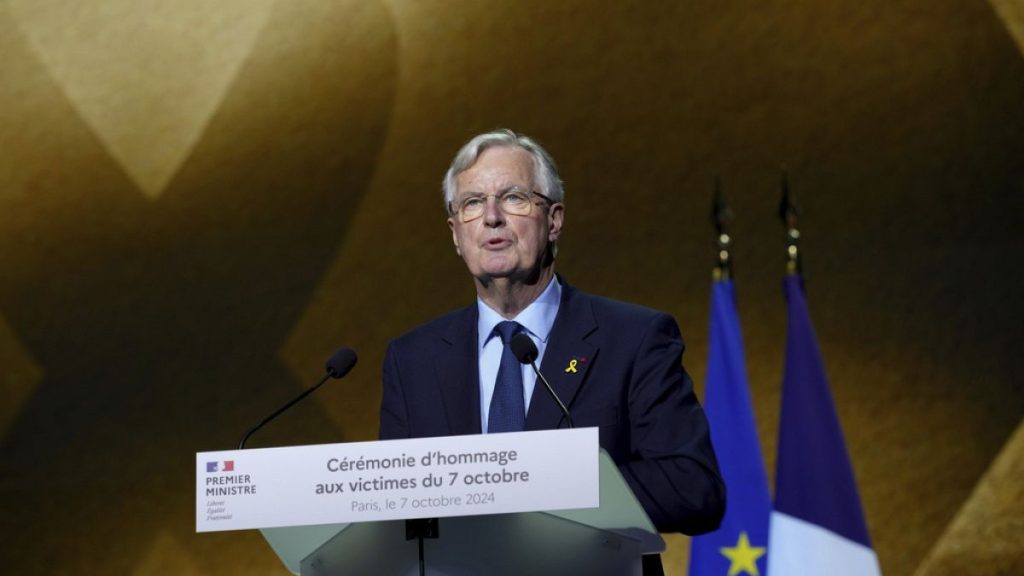The French National Assembly did not have a clear winner in the snap election held during the summer, with no party or coalition securing an absolute majority. The two-week-old government led by Prime Minister Michel Barnier survived a no-confidence vote initiated by the left-wing New Popular Front (NFP) coalition. The NFP, composed of the hard-left France Unbowed, Socialists, Greens, and Communists, fell short of the 289 votes needed to topple the government, with only 197 MPs in favor of the motion. Despite holding the most seats in the National Assembly after the snap elections, the left was not given the opportunity to form a minority government by French President Emmanuel Macron. The NFP believed that the Prime Minister should have come from their ranks, with MP Clémence Guetté accusing Barnier of governing “by force,” pointing out that his party, Les Républicains, had only secured 6% of the vote in the legislative elections.
Prime Minister Michel Barnier criticized the left for not giving him a chance and claimed that his “relative majority” was affected by the fragmentation of political forces in the country. He expressed disappointment at the opposition’s decision to vote against him even before he had presented his general policy plan. The far-right National Rally (RN), which has 125 MPs, announced that they would abstain from voting against Barnier’s government “for now,” but expressed a readiness to vote against the government in future. Far-right MP Guillaume Bigot acknowledged that Barnier’s policy plan may not be convincing but also not shocking, hinting at potential future votes of no-confidence against the Prime Minister in the coming months amidst mounting political tensions.
The NFP coalition, consisting of various left-wing parties, including France Unbowed, Socialists, Greens, and Communists, led the charge in proposing a no-confidence motion against Prime Minister Michel Barnier’s government. Although the coalition did not garner enough support to topple the government, with only 197 MPs voting in favor of the motion, they expressed their dissatisfaction with Barnier’s leadership and questioned his mandate to govern. Clémence Guetté, an MP from the hard-left France Unbowed party, accused Barnier of ruling “by force” and highlighted the low electoral support for his party, Les Républicains, in the recent legislative elections. The left believed that the Prime Minister should have come from their ranks, given their majority in the National Assembly.
Prime Minister Michel Barnier defended his government against the no-confidence motion brought by the left-wing NFP coalition, citing the challenges posed by the fragmented political landscape in France. Despite facing criticism from the opposition, including accusations of governing “by force,” Barnier maintained that his “relative majority” was a result of the complex distribution of political forces in the country. He expressed disappointment at the opposition’s preemptive decision to vote against him before he had the chance to present his general policy plan. The far-right National Rally (RN), with 125 MPs, indicated that they would abstain from voting against Barnier’s government for the time being, signaling a potential shift in their stance in the future given the political dynamics at play.
With the political climate in France marked by tensions and divisions, Prime Minister Michel Barnier’s leadership is likely to face further challenges in the form of future no-confidence votes. The far-right National Rally (RN) has hinted at a willingness to vote against Barnier’s government in the future, despite abstaining from the recent no-confidence motion. Far-right MP Guillaume Bigot acknowledged the lack of “convincing” elements in Barnier’s policy plan but also noted that it did not contain anything particularly objectionable. As Barnier navigates the complexities of governing amidst a fragmented political landscape and opposition from various quarters, the potential for multiple no-confidence motions in the coming months looms large, highlighting the challenges ahead for the French government and its leadership.


